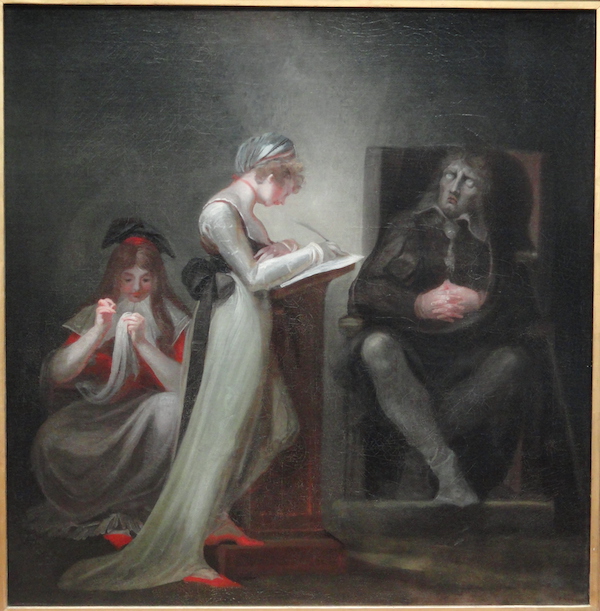A conversation with the playwright | OLD JAKE’S SKIRTS
by Kayla Tomas, Dramaturg
Adapted from C. Anne Scott’s novel of the same name, Old Jake’s Skirts follows the journey of Old Jake, a hermit farmer, carving out a life of pumpkin farming and marking the years by the plagues that visited him. It isn’t until he stumbles upon a mysterious trunk on his way into town that his world starts to shift. After months of waiting for the owner’s claim, Old Jake reveals its contents: calico skirts. Not one for waste, he begins to imaginatively use the skirts, bringing color back into his life.
When approached with this piece, playwright José Cruz González asked “How do we theatricalize this beautifully illustrated book and also capture the soul of it in a theatrical production?”
In incorporating devising methods, toy theater, music, and a touch of magic, C. Anne Scott’s words and David Slonim’s illustrations come to life in this tender and uplifting story of finding joy even after loss.
Old Jake’s Skirts was developed at Childsplay in Tempe, Arizona, a professional theatrical organization whose chosen audience is children, and premiered there in 2004.
A group effort, the adaptation was conducted by five actors, two directors, a playwright, and a musician/composer. Much of the original text from Scott’s narrative remains, and the only new element added was music. The first production included a live musician playing multiple instruments, four actors playing all the roles, and the use of miniature models, including Old Jake’s truck and the cabin, as a storytelling device throughout.
The cast and design team of Old Jake’s Skirts were generously joined by José Cruz González to discuss the adaptation process, writing for the young audience, and what to bear in mind when producing this piece.
Kayla Tomas (Dramaturg): Can you tell us about the adaptation process?
José Cruz González (Playwright): We’re going back to 2004, when David Saar, the former Artistic Director of Childsplay, came to me with C. Ann Scott’s, Old Jake’s Skirts. I was interested in exploring a toy theater-type world. Small things. I just love the details she had with the calico skirts and the idea of trying to capture this little town in miniature. Music was another important element I wanted to capture; there isn’t any in the book though we were able to bring out that world. Really looking at and exploring the theatricality of storytelling. We can go from a character, to a miniature world, to a dog, to rabbit puppets, that sort of stuff. It was rich in color and just gorgeous.
Kayla Tomas (Dramaturg): Many of the plays in your body of work dip into magical realism and mature adult themes, so I am curious: what excites you about writing for the young audience?
José Cruz González (Playwright): I was at a point in my life as a writer and as an artist where I just really needed to be inspired. I felt that I had gone down a road where I had to keep dealing with gatekeepers. When I talked to David Saar, I said ‘David, I just want to get some inspiration and I want to go someplace else where people are doing it in a completely different way’ and he said ‘Go to Europe.’ So I went to Copenhangen to an international theater festival and it was there where it just shocked me in terms of the material and subject matter that these artists were dealing with. When I was driving with one of the folks that were part of the festival, I said, ‘I have seen everything from death to challenging material to this to that in terms of so many taboo subjects for youth, how’s that possible?’ And he said, ‘Look, children go through death. They go through loss. They go through tragedies, sickness. Why hide that from them?’ And I thought that was a really great point. That inspired me to come back and begin pushing my own form of artmaking, my own questions about how to challenge young people, and also bringing in family to be a part of it to hopefully have those discussions on their way home.
Kayla Tomas (Dramaturg): What should we bear in mind when producing this show?
José Cruz González (Playwright): Well, you’re already there in the world of Old Jake, and what a joy to be among classmates and colleagues and your professor/director, your space. Creating this piece together, discovering it together, and then sharing it, not only with each other, but also with an audience, that is a really powerful thing and an affirmation. We need good stories. We need stories to entertain us, also to teach us, to sort of sweep us away, even for just a little while, and inspire us and question. Our world needs healing and it’s the artist that is the one who has this power.
Celina Burgueño (Cast Member): You spoke a little bit about how music is a part that you added in the adaptation, so I want to hear a little bit more on selecting the pieces that you did.
José Cruz González (Playwright): I wanted to find songs that were really going to create this world and this atmosphere, but also a menu of putting you into this world where Old Jake exists, in this little town and little country area while harkening back to stuff that we might have grown up with. Of course you go into rehearsal and you’re trying things. You’re testing stuff out. What sticks? What doesn’t stick? Best idea always wins, right? Picking and choosing what moments gave us vocal storytelling and underscoring. You’ve got this beautiful mandolin underscoring a moment, and it just adds another layer of heart.
Ally Anna McLean (Cast Member): I’m sure you’ve seen multiple productions of your play and I was wondering: was there anything staged a certain way that really stuck out to you that you loved that you can share with us for inspiration?
José Cruz González (Playwright): I have never seen any other production other than the original production in 2004. But each production takes what it has, knows its limitations. And from out of those limitations, they can create magic. And I love interpretation because they make it work for their time, their moment, with their talent, and that’s what I love the most. That’s when it’s really magical. So I am sure yours will be that way just as much.



